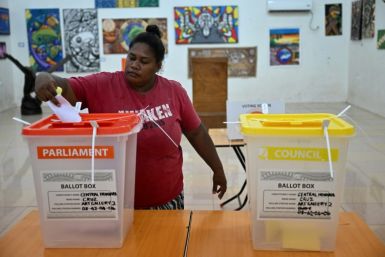Execs Name Alberta as Most Attractive Mining Jurisdiction in Canada
YouTube/David Morrill
Among the Canadian provinces and territories, Alberta is the most attractive jurisdiction for mining investment in the province, the annual global survey of mining executives said.
The survey is conducted by Fraser Institute, a Canadian public policy think-tank. The survey had 690 respondents from mineral exploration and development companies.
It is the second straight year that Alberta topped the yearly survey among Canadian jurisdictions. However, globally, Alberta ranks third among 112 jurisdictions.
Sweden topped the list, followed by Finland. In 4th to 10th places are Ireland, Wyoming, Western Australia, New Brunswick, Nevada, Newfoundland & Labrador and Norway. The 7th and 9th placers are in Canada also.
YouTube/bm1113
Kenneth Green, director of the Survey of Mining Companies 2013 said the confidence that mining execs placed on Sweden and Finland are proofs that a successful mining industry could be combined with enacting sound environmental protection laws.
In picking Alberta where the controversial oil sands are located, Mr Green, also the senior director of energy and natural resources of Fraser Institute, pointed to the Canadian province's transparent and productive approach to mining policy. He also cited Alberta's offer of competitive taxation regimes, sound legal systems and relatively low uncertainty surrounding land cases.
Besides the two other Canadian jurisdictions in the list's top 10, others that ranked prominently are Saskatchewan (12), Yukon (19), Quebec (21), Manitoba (26), Ontario (28), Nova Scotia (29), British Columbia (32), Nunavut (44) and Northwest Territories (47).
Quebec use to be number one among Canadian jurisdictions from 2007 through 2009, but it tumbled down to number 5 in 2011 and further declined to 11 in 2012 and now 21 due to changes in the French-speaking province's Mining Act and amendments to its tax policy changes.
Mr Green said, quoted by Mining Weekly, "If Quebec wants to renew confidence in the global mining sector, it should reduce and red tape, minimize the risk associated with policy changes and tax increases, and respect negotiated contracts."
On the bottom 10 of the global list are Krygyzstan, Venezuela, the Philippines, Argentina's La Rioja, Angola, Argentina's Mendoza, Zimbabwe, Ivory Coast, Indonesia and Madagascar.






